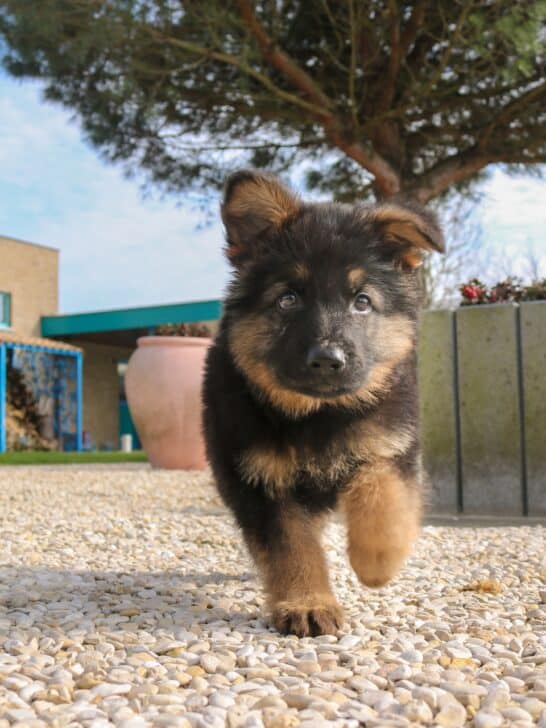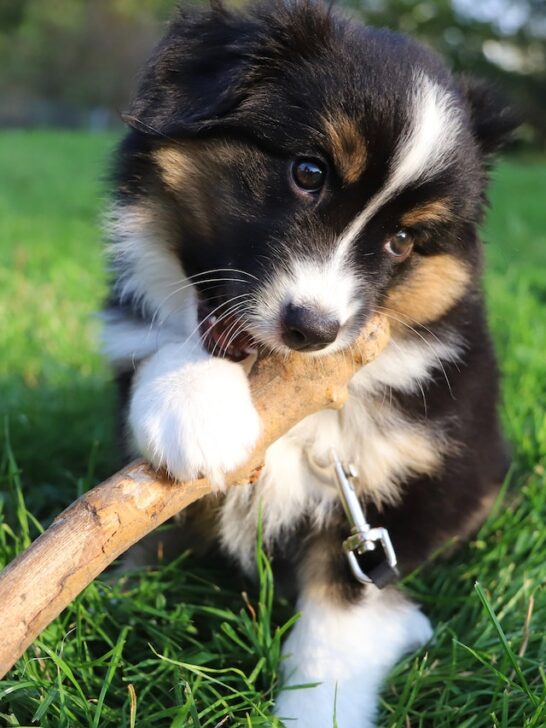Why Does My Dog Suddenly Ignore Me? – (17 Reasons Explained)
Dogs are some of the best companions due to their loyalty and protectiveness.
So, why do dogs sometimes ignore us?
There are a few reasons your dog may suddenly ignore you, including:
- Illnesses
- Lack of training
- Boredom
- Accidentally rewarding their behavior
Here are 17 possible reasons why your dog suddenly ignores you and what to do about it.
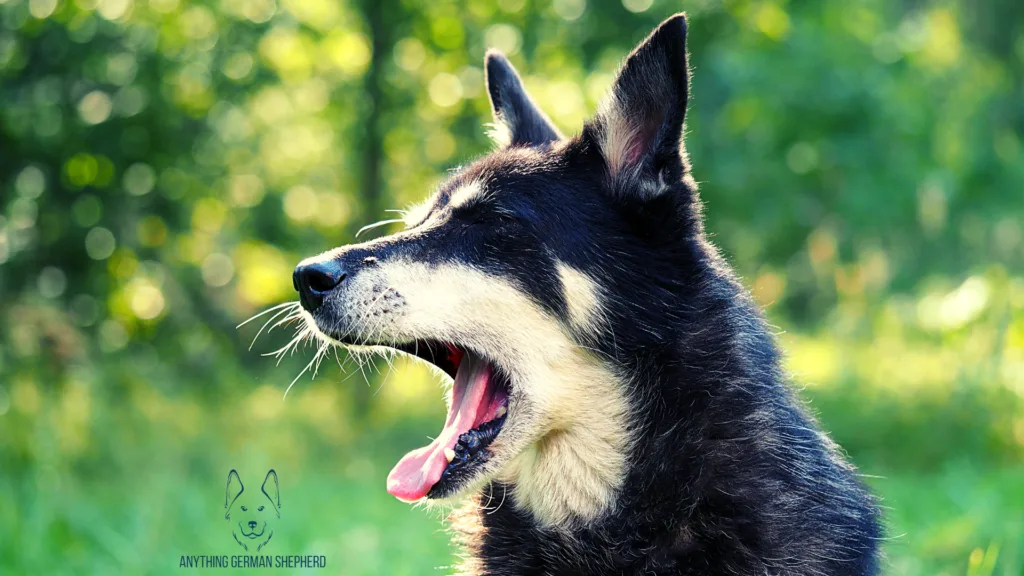
Top 17 Reasons Why Your Dog Suddenly Ignores You
If you’re wracking your brain trying to figure out, “Why does my dog suddenly ignore me?” you may find the answer below.
You Have a Weak Bond
It may be challenging to see this, but the weak bond can last for a while.
Dogs bond with humans similarly to how infants bond with their caregivers.
It takes time for your dog to become familiar with you and to create that life-long attachment.
If you recently adopted a puppy or a younger dog, it may take weeks or months, depending on the circumstances.

On the other hand, a dog you’ve had for a while suddenly ignoring you may be doing so because you haven’t given enough energy to the critical bonding period.
Dedicate time to playing with your pup, train them, and do activities for exercise, like walking. This bond may take time to happen.
Before you know it, your dog will readily listen to you again.
You Give Everything to Your Dog on a Silver Platter
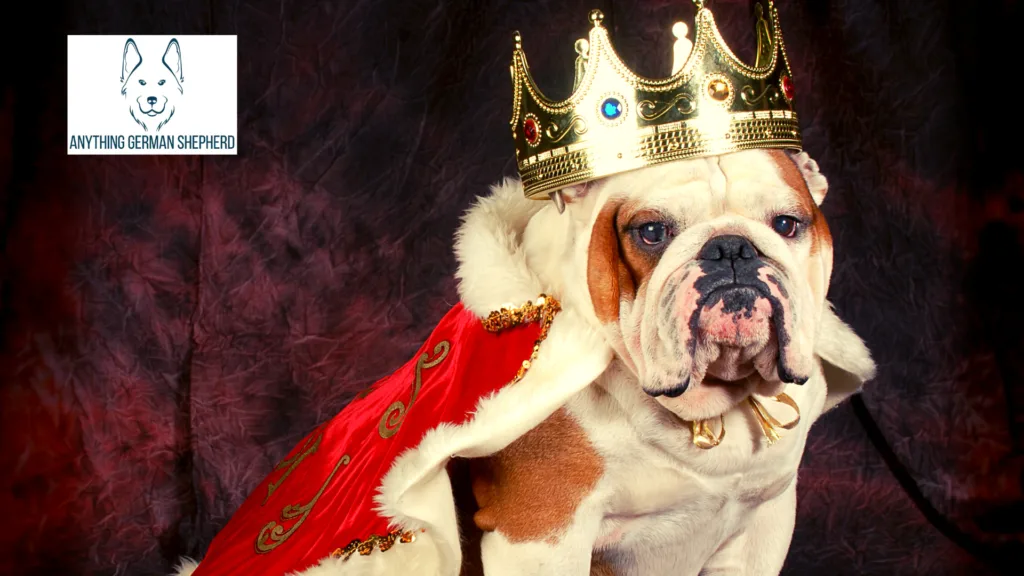
Dogs are intelligent creatures who know how to flash those puppy dog eyes to get their way.
However, to be a successful pet parent, you’ll need to be strict about encouraging positive behaviors.
If your dog ignores your commands, you must self-reflect and determine if you’ve been unintentionally encouraging this behavior.
For example, if you use treats or toys to get their attention, you’re giving them positive reinforcement for bad behavior.
To reverse this, you’ll need to teach your dog that they only get treats and toys after they listen to your commands.
It’s Your Looks
It may seem silly that how you look could suddenly cause your dog to ignore you, but it’s something to note if you recently changed your appearance.
For example, if you dyed your hair or shaved your beard, it could affect how your dog perceives you.
If your dog associates your new look with past trauma or PTSD, it could make them weary of you and cause them to ignore your commands.
If you’ve had your dog as a puppy or adopted them from an abuse-free home, they may need some time to adjust to your new look.
Luckily, an appearance shift shouldn’t cause any long-term issues in most cases.
Your Words Are Overwhelming Your Dog
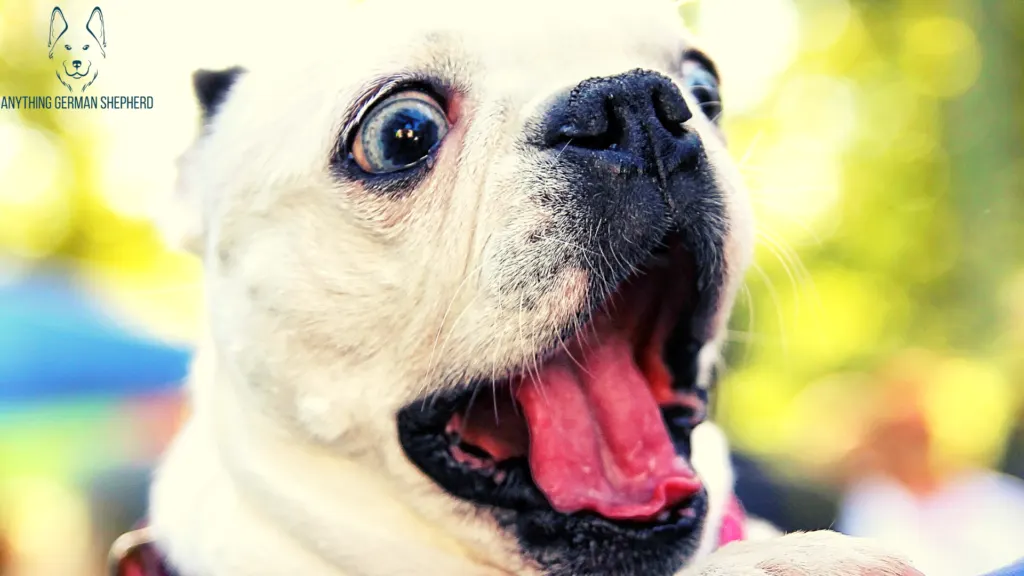
Although dogs are brilliant, they can only understand your commands if they are clear, concise, and consistent.
For example, if you want your dog to come to you but jump between “come here” and “get over here,” you may overwhelm your pup.
Dogs respond much more quickly to a straightforward command.
With the above example, the best order would be a simple “Come!” It’s only one word for them to remember, and it is the same word each time.
If your dog continues to struggle, it can be helpful to add signs. Choose a hand signal for each command.
For “come,” you may bend your arm at the elbow, and “sit” may be a flat hand moving toward the floor.
However, you can use whatever works best for you.
Of course, don’t forget to give your pup a treat and verbal positive reinforcement once they follow your commands.
Your Dog’s Environment Is To Blame
Pay attention to the moments your dog ignores you.
For example, if your typically obedient dog stops listening to you at the park or when you have visitors, the environmental change may be to blame.
Parks can have a lot of excitement happening at once.
Early socialization is crucial for getting young dogs used to new surroundings, people, and animals.
You must continue training your pup when taking them to a busy location, like a park, or when you have guests.
This way, they will learn to listen to you no matter their environment.
It’ll take time and patience, but your dog should eventually come around.
You Scolded Your Dog (At The Wrong Time)
This reason may seem confusing, especially if you only scold them immediately after they’ve done something wrong.
However, it can be challenging for dogs to understand what they’ve done wrong every time.
They may avoid you when you scold them at the wrong time because they sense your frustration.
They may start thinking of humans as angry and unpredictable, so your pup runs at the sign of anger.
This reaction to them doing something right can be incredibly confusing. Sometimes, you may not even realize you’re scolding them.
For example, you’ve asked your dog to come to you several times. Once they finally do, you’re still irritated that it took so long.
Dogs are very in-the-moment creatures and don’t have the cognitive ability to consider that you may be upset that they didn’t listen the first time.
Even if you’re frustrated, praise your pup when they respond to your command (even if they’re a little late).
The Treats Just Don’t Speak to Your Dog

Like commands, dogs need straightforward responses for good behavior, too. You may think, “I praise my dog and offer treats, so why isn’t my dog listening to me?”
However, it would help if you learned to communicate effectively with your dog in a language they understand.
Additionally, each dog has their treat preference. Some pups prefer chicken-based treats, while others prefer turkey.
Test out different treats to help you identify which type your pup likes.
When your dog listens to your commands, choose a word or phrase like “good boy” and a treat you know they love.
With this combination, they’ll be more receptive to doing what you say and should stop ignoring you.
You Expect Too Much But Do Too Little
Training your dog takes time, and their progress will sometimes revert back and forth.
This fact is especially true if you have a puppy or are trying to implement new commands for an adult dog.
If you’ve chosen a specific word for each command and identified their favorite treat, you may have too high of expectations.
Although it can be challenging to feel like your dog is ignoring you or not picking up their training, keep doing what you’re doing.
It takes time, repetition, and perseverance for a dog to respond to several commands in various situations consistently.
Focus on one command to work on at once, and be patient while your dog learns it. From there, you can move on to further training.
Your Dog Fears You

When we think of dogs, we think about how they’re adorable creatures with unconditional love for us.
While that’s true to some extent, dogs remember some experiences.
More research needs to be done, though we know trauma can significantly affect canine companions.
Sometimes, a raised voice is all it takes to spook your pup.
For some dogs, it takes even less than spanking or yelling to cause them to fear you.
Dogs are excellent at picking up on body language.
The hard truth is your tone and body language impact your pets, so do your best to be aware of it.
Your Dog is a Hyper Dog By Nature
Some dogs are more hyper than others and have a lot of excitement and energy.
All dogs, however, can become overly excited by specific scenarios, like hearing your car pull up or seeing you go to grab the treat bag.
If your dog is overly hyper or excited about something, they may be less likely to listen to you.
Like with environmental factors, you’ll need to train your dog to listen to you during various scenarios.
Additionally, ensure your pup gets plenty of exercise to expend their overflowing energy. Some breeds need more physical activity than others, so do your best to meet their needs.
They Don’t Get Enough Training
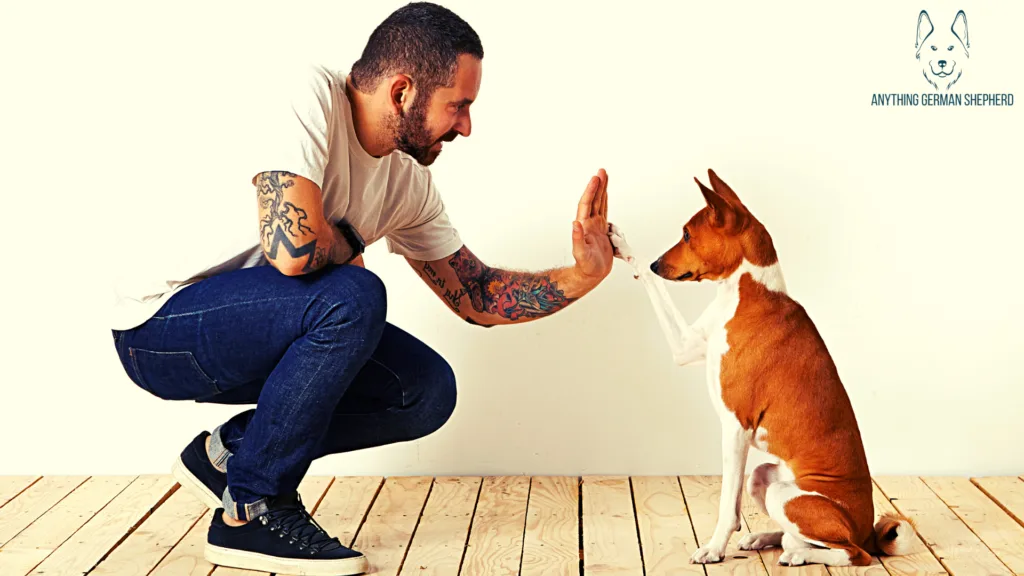
Dog training may seem straightforward; teach a command, then reward the dog for responding.
However, many of us may lessen our activity once your dog starts getting the hang of it.
Training isn’t linear, and your dog may have moments where it could be more receptive.
Then, you may get laxer about training altogether as time goes on. Consistency is key when it comes to teaching your dog.
If you notice your dog is ignoring your commands, it’s time to go back to the basics and teach them what behaviors are unacceptable.
They Have Medical Issues
Anytime your dog has a sudden behavior change, you’ll want to rule out any illnesses or other health problems.
For example, if your dog has some ear issue, like an infection, they may not be able to hear you.
As dogs age, they may suffer from:
- Hearing loss
- Dementia (CCD)
- Arthritis
Hearing loss can affect them gradually, so you may not notice it at first.
On the other hand, ear conditions like an infection, disease, or ruptured eardrum may happen suddenly.
Dogs near the end of their life may struggle with dog dementia or canine cognitive disorder (CCD) and may forget commands that were once easy for them.
Of course, any medical issue, like arthritis, may make it more challenging for them to move, causing them to inadvertently not listen to you.
If your dog suddenly stops ignoring you or has other symptoms like scratching their ears, acting lethargic, or vomiting, take them to the vet.
They Don’t See You as Their Leader
As pack animals, dogs will look to the leader for guidance and direction.
If your dog doesn’t view you as the pack leader, they may ignore your commands, especially if they feel tired or lazy.
To combat this, you’ll need to set stricter rules and guidelines for your dogs.
If they’re begging for food, don’t give in; you choose when they eat.
It can also be helpful to take your dog to an obedience class.
Although you may feel bad not giving in to your dog’s wants, trust that it’ll benefit you both in the long run.
Training your dog to view you as the pack leader builds trust and respect and makes life easier for you and your dog.
Your Dog Is Sad or Depressed Because You Don’t Pay Enough Attention to Them
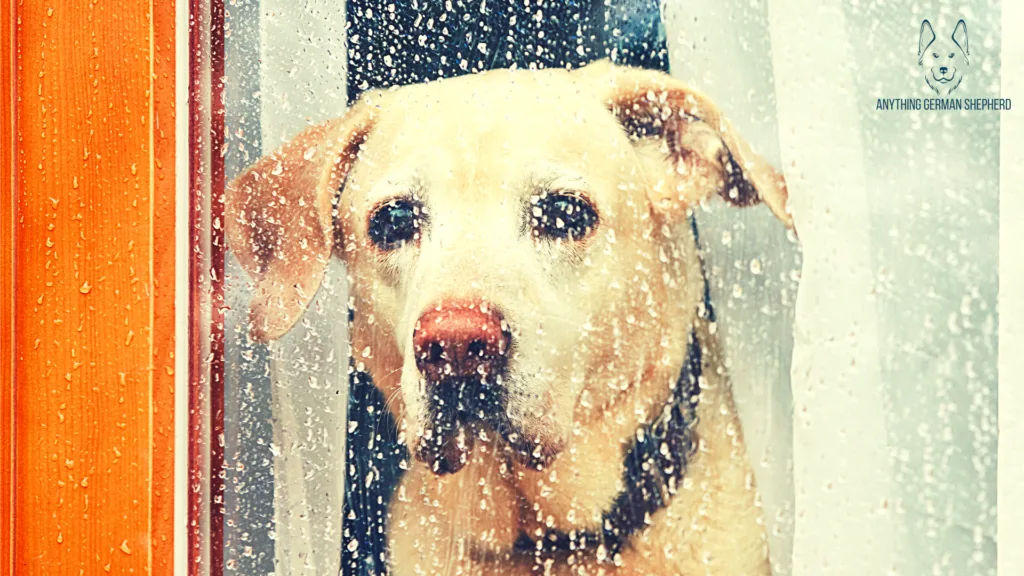
Like humans, dogs can experience mental health issues, which may cause them to ignore you.
If you were once present with your dog and this routine suddenly stops, you may notice them acting more distant.
Your pup may ignore you because they’ve realized that you give them more attention when they do so.
Busy work schedules and general life can feel exhausting, causing you to give your pup less attention accidentally.
However, do your best to schedule some daily play time, training sessions, and exercise to keep your bond strong.
Other signs of dog depression include loss of appetite, not enjoying activities they used to enjoy, and lethargy.
Additionally, significant lifestyle changes can cause dogs to feel depressed.
Not Enough Exercise
Exercise plays a crucial role in your pet’s overall health and well-being.
Dogs who don’t engage in enough regular activity can become bored, which leads to behavioral issues.
If your dog lacks exercise, you may also notice aggressive behaviors.
Different dog breeds and sizes require their own unique physical activity requirements.
Ensure that you are implementing enough exercise for your dog regarding its size, breed, and age.
If it’s hard to squeeze in 30-60 mins of physical activity with your dog, break up the walks into 10-15 minute segments throughout the day.
In fact, for some dogs, 10-minute intervals can be even more effective than one big bout of exercise.
Your Dog is in Pain
Like medical issues, your dog may have hurt themselves.
Or, they may have Canine influenza or a similar disease.
If your dog is in pain or doesn’t feel well, they may struggle to move or lack the motivation to do so.
Signs of dog illness may include:
- Lethargy
- Chewing or scratching a particular area
- Lack of appetite or overeating
- Change in posture
- Behavioral changes
- Runny nose
If your dog suddenly ignores you and has one or more of the above symptoms (or is acting strange), contact your veterinarian to pinpoint the issue.
Your Dog Ignores You Because You Do It (Probably)
If your dog sees you ignoring them, they may give you the cold shoulder.
You may not be ignoring them on purpose, but unfortunately, dogs need help understanding the concept of intentional vs. unintentional actions.
If you’ve been spending more time at work or started dating someone new and spending more time away from home, it may affect your dog in several ways.
On the one hand, they may become sad that you don’t seem to be around as much.
Your dog may also stop seeing you as their companion, causing them to act more distant.
Make your best effort to spend quality time with your dog at least once daily to show you’re still there and still love them.
Watch: How To Train Your Dog Not To Ignore You
How Do I Get My Dog To Listen to Me?
Now that you know why your dog may be ignoring you, you may wonder what the next steps are.
Here’s how to get your dog to listen to you.
Pay Attention to Potential Health Issues
Unfortunately, dogs can’t tell us when they feel depressed, anxious, or sick.
Instead, we must pay attention to their distinctive cues and notice any changes.
If you typically have an attentive dog that suddenly begins to ignore you, it may be due to a health issue.
Use your best judgment and look for additional symptoms besides the distant behavior.
If you think your dog may be ignoring or avoiding you due to a health issue, it’s best to schedule a veterinarian appointment.
Sometimes, there may be no other indication of an illness aside from ignoring you.
Once you take your pup to the vet and rule out health issues, you can move on to the next steps.
What Is Different When Your Dog Listens to You?
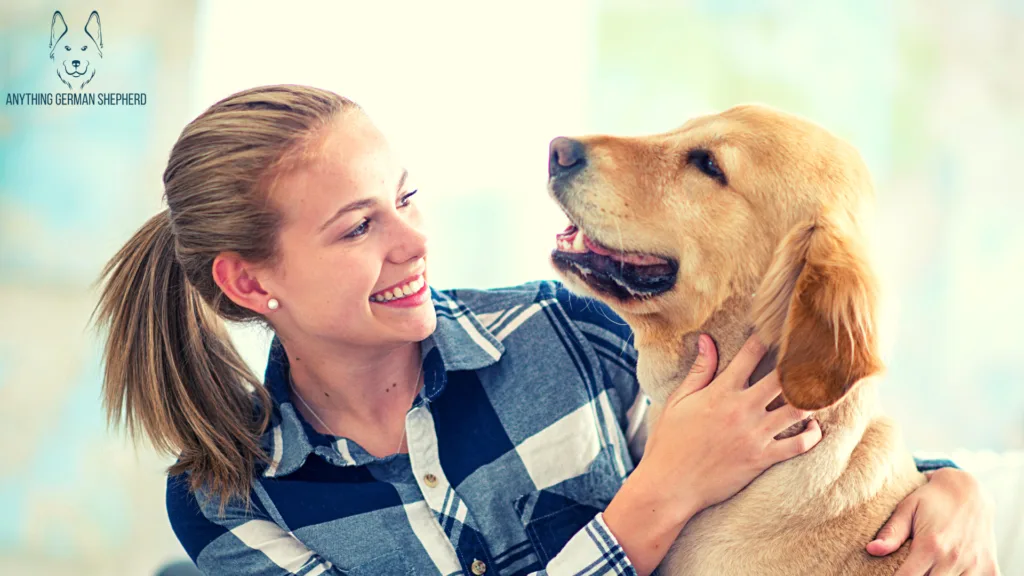
You may notice that your dog sometimes ignores you, though they don’t do it consistently.
If this is the case, their distant behavior likely has a specific cause.
Pay attention to what seems to trigger your dog to ignore you.
For example, you may notice a pattern in your actions.
Let’s say you watch football and yell at the TV; your dog ignores you for the rest of the night.
Your dog may feel like they’ve done something wrong and choose to avoid you.
If you notice it occurs during an environment shift, like being around other dogs or people, your dog may struggle to pay attention to you with so much going on at once.
Lastly, if you recently moved or altered your dog’s life or routine in any way, you may notice that the ignoring started recently afterward.
For the above reasons, you’ll want to review if your dog’s been getting plenty of exercise, one-on-one play time with you, and consistent training.
Work On Your Communication Skills
Your communication may need to improve if you’ve been consistently training, playing, and implementing physical activity for your pup.
In addition to using one-word commands, ensure you’re focusing on one trick at a time.
Perhaps when you train your dog, you’re teaching them too much at once. Or, you may be using their name with the trick, which is throwing them off.
Focus on one command for the next training session to help your dog get it down.
If your dog loses interest, ask yourself a couple of questions:
- Am I talking too much in between commands?
- Did I offer my pup a treat they enjoy?
- Is my praise easy to understand?
- Have I implemented consistent body language commands with verbal commands?
Communication between you and your dog is a two-way street, so make sure you use words and body language your pup can understand.
If you still feel like you’re doing all the right things, talk to other family members in the house.
They may be using different words or phrases and confusing your dog.
Choose the Treats They Really Love

In addition to the above tips, ensure you use their favorite treats during training sessions.
Your dog may even enjoy the treats you give them but get bored with receiving the same thing each time.
If you see that your dog quickly eats the treat and ignores you, then you’ll have to make a few changes.
Experiment with different flavors, textures, and shapes to identify which ones excite your dog most. Then, alternate between the top choices to keep the enthusiasm going.
Some dogs may prefer toys over treats. Rather than using food, choose a squeaking toy or another toy that makes your dog excited.
Like treats, rotate their favorite toys to avoid boredom.
If your dog enjoys both, alternate between different toys and treats, and they’ll never get bored!
By choosing the treats they love, they’ll not only begin listening to you but will be eager to learn and perform the following command.
Train Your Dog To Pay Attention to You
If you’ve been on top of your training routine and still have a pup who won’t listen, you may need to go back to the basics.
Focus on simple skills like:
- Saying their name and ensuring they recognize it.
- Basic commands like sit, stay, and come.
Keep being consistent with commands and offering rewards to build trust with your dog. Train your dog in various parts of your home, outside, and in public places.
Soon, your dog will pick up on the consistency in your training and learn that you expect them to respond no matter the location or environment.
Make sure you stay enthusiastic throughout the training sessions.
It may take your pup a few tries to get it down, so make sure they know they did an excellent job once they accomplish the task.
If you continue struggling with training your pup, search for a professional trainer to teach you personalized training tips.
Frequently Asked Questions
Here are the most frequently asked questions regarding the question, “Why is my dog suddenly ignoring me?”
Why is my dog suddenly distant?
Dogs may become suddenly distant if they have a health issue.
If your dog has other symptoms or behavioral issues, take them to the vet to rule out health problems.
Do dogs purposely ignore you?
Yes and no.
Dogs can pick up on verbal cues and body language, causing them to distance themselves or ignore your commands.
What to do when my dog ignores me?
If your dog ignores you, first rule out any medical issues with your veterinarian.
From there, work on consistently training them, playing with them, and ensuring they get enough exercise.
























